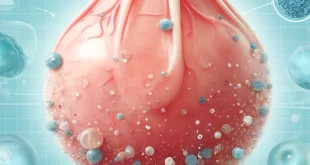Early-Stage Researcher (ESR) / PhD student
ADVANCED CHROMOSOMAL TESTING TOOLS FOR EMBRYO QUALITY AND FETAL HEALTH
PhD student will carry out her/his doctoral research and training jointly at two degree-awarding universities and will be awarded a double PhD degree from the University of Tartu (Estonia) as the main host, and the Karolinska Institutet (Stockholm, Sweden) as the co-host.
Universities and research units
A successful candidate will be selected to work on a research project coordinated by the Institute of Molecular and Cell Biology (Prof. Ants Kurg’s research group), an interdisciplinary centre that performs research on molecular and cell biology issues with regard to innovations in biomedical research and healthcare. The staff members of this center publish their work in international peer reviewed journals, participate in national and international research projects, and teach students of all academic levels.
The ESR will be co-hosted by the Department of Biosciences and Nutrition at the Karolinska Institutet (Prof. Juha Kere’s research group), focussing on the molecular mechanisms of reproduction, including the mammalian early embryogenesis.
Project
A PhD researcher will be hired on a project funded through the EU project MATER, a Marie Curie Training Network.
The goal of the project is to study the effects of in vitro environment on epigenetic regulation of oocyte maturation and embryonic development by comparing in vivo and in vitro generated bovine embryos. This will be achieved by comparing the in vivo conceived embryos and in vitro embryos produced by ovum pick-up (OPU) with ovarian stimulation (OPU-IVF). The more specific focus is to study the effects of in vitro manipulations (embryo in vitro culturing at different conditions and embryo vitrification/thawing) on the epigenetic regulation of embryonal cells’ development.
This will be done through ChIP-seq technology from single or low number of embryonic cells allowing to investigate histone modifications, associated with different genomic features, such as promoters of active genes, active enhancers or silenced chromatin. In addition, ATAC-seq technology will be used to study opened/closed chromatin. Critical regions identified by above methods will be tested with other methodologies.
ESR will mostly be hosted by the University of Tartu and will be seconded for a shorter period to the Karolinska Institutet (minimum of 6 months in total). The position also includes a training period in European company focusing on reproductive health.
Eligibility criteria
• Researchers can be of any nationality.
• There is no age limit.
• All researchers recruited in a Marie Sklodowska-Curie ITN must be ESRs. An ESR shall, at the time of recruitment by the host organisation, be in the first four years of their research career and not yet have been awarded a doctoral degree. The four years start to count from the date when a researcher obtained the degree, which would formally entitle her/him to embark on a doctorate.
• Researchers are required to undertake transnational mobility (i.e. move from one country to another) when taking up their appointment.
• One general rule applies to the appointment of researchers: At the time of recruitment by the host beneficiary, researchers must not have resided or carried out their main activity (work, studies, etc.) in the country of their host beneficiary for more than 12 months in the 3 years immediately prior to the reference date. Note that the mobility rule applies to the beneficiary where the researcher is recruited, and not to beneficiaries to which the researcher is sent or seconded.
A successful PhD candidate should preferably have:
• Degree in molecular biology, biomedical sciences, bioinformatics, or a relevant other discipline;
• An outstanding record of undergraduate and master’s degree work;
• Highly motivated candidate with strong interest in different aspects of biomedical innovations and a demonstrable affinity with the project;
• Experience with hands-on molecular biology methods and data analysis;
• Proven proficiency in English, both written and orally;
• Strong writing and analytical skills;
• Good communication and organization skills;
• Ability to meet deadlines and complete a PhD thesis within the defined project time;
• Capacity to work both as an independent researcher and as part of a team;
• Ability to work in an interdisciplinary context.
Additional information: https://mater.ut.ee/application
What we offer
We are offering one full time appointment (100%) as a PhD student for a period of 4 years, of which the first three years are covered by the Marie Curie ITN project and the fourth year by the hosting research institutes. The starting date can be negotiated. ESR12 will be awarded a PhD by the University of Tartu and the Karolinska Institutet.
The project also offers a unique opportunity to train under several established researchers in the field of reproductive health and thus opportunity to obtain vast network facilitating establishment of fellow’s future career. The multinational research environment will help in advancing adaptation and organization skills, both important traits to become a successful researcher.
Interested?
For more information please contact Prof. Dr. Ants Kurg (Ants.Kurg@ut.ee), Associate Prof. Dr. Tõnis Org (Tonis.Org@ut.ee) or Prof. Juha Kere (juha.kere@ki.se).
For questions regarding MSCA EJD double degree, please contact Reet Marits (reet.marits@ut.ee) at Tartu University or Lotta Lundqvist (lotta.lundqvist@ki.se) or Lise-Lotte Vedin (lise-lotte.vedin@ki.se) at KI.
Apply here: https://mater.ut.ee/application
Candidates who make the shortlist will be invited for an interview. These may be conducted in person or via Skype.
 medjouel.com Study Non Stop
medjouel.com Study Non Stop



